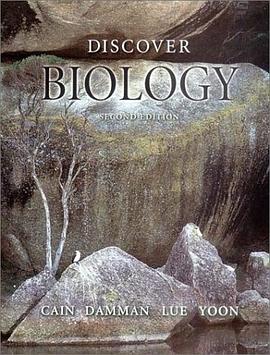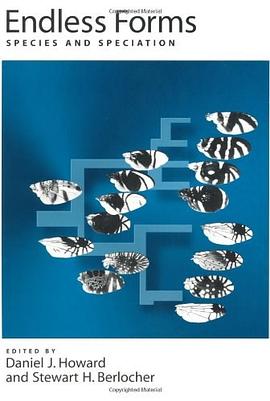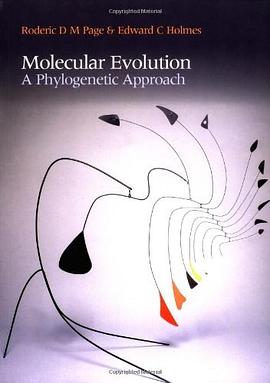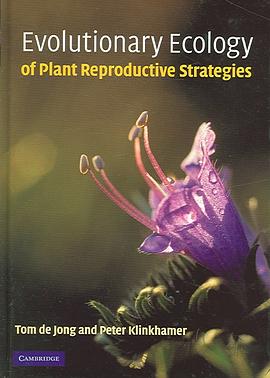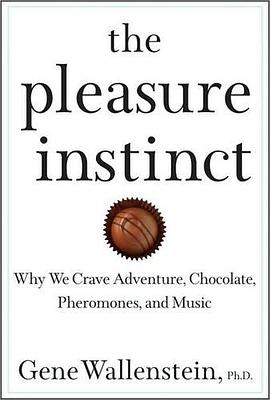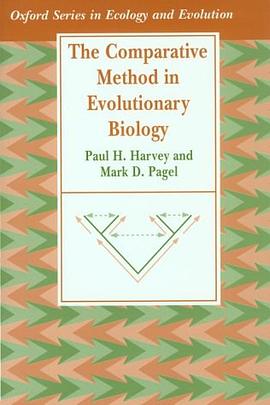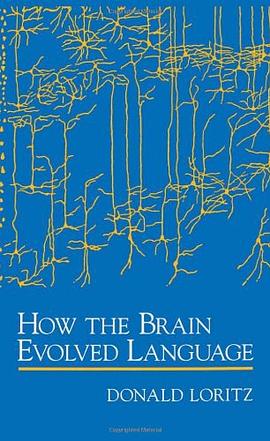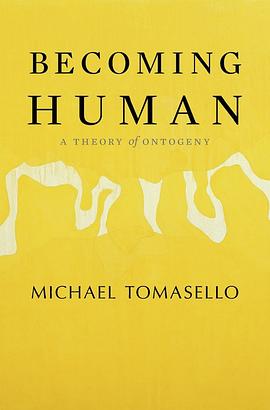

具体描述
A radical reconsideration of how we develop the qualities that make us human, based on decades of cutting-edge experimental work by the former director of the Max Planck Institute for Evolutionary Anthropology.
Virtually all theories of how humans have become such a distinctive species focus on evolution. Here, Michael Tomasello proposes a complementary theory of human uniqueness, focused on development. Building on the seminal ideas of Vygotsky, his data-driven model explains how those things that make us most human are constructed during the first years of a child’s life.
Tomasello assembles nearly three decades of experimental work with chimpanzees, bonobos, and human children to propose a new framework for psychological growth between birth and seven years of age. He identifies eight pathways that starkly differentiate humans from their closest primate relatives: social cognition, communication, cultural learning, cooperative thinking, collaboration, prosociality, social norms, and moral identity. In each of these, great apes possess rudimentary abilities. But then, Tomasello argues, the maturation of humans’ evolved capacities for shared intentionality transform these abilities—through the new forms of sociocultural interaction they enable—into uniquely human cognition and sociality. The first step occurs around nine months, with the emergence of joint intentionality, exercised mostly with caregiving adults. The second step occurs around three years, with the emergence of collective intentionality involving both authoritative adults, who convey cultural knowledge, and coequal peers, who elicit collaboration and communication. Finally, by age six or seven, children become responsible for self-regulating their beliefs and actions so that they comport with cultural norms.
Becoming Human places human sociocultural activity within the framework of modern evolutionary theory, and shows how biology creates the conditions under which culture does its work.
作者简介
Michael Tomasello is Professor of Psychology and Neuroscience at Duke University. From 1998 to 2018 he was Co-Director of the Max Planck Institute for Evolutionary Anthropology, and in 2017 he was elected to the National Academy of Sciences and the American Academy of Arts and Sciences. His scientific work has been recognized by institutions around the world, including the Guggenheim Foundation, the British Academy, the Royal Academy of Netherlands, and the German National Academy of Sciences.
目录信息
读后感
评分
评分
评分
评分
用户评价
我被这本书所描绘的人类心智的演变过程深深吸引。作者以一种非凡的洞察力,揭示了人类意识是如何在漫长的岁月中,从最初的简单感知,发展到如今的复杂思维、抽象推理和自我认知。我一直对“意识”这个概念感到好奇,它究竟是什么?它如何产生?又如何影响我们的行为?这本书为我提供了许多启发性的答案。作者在书中对“语言”的演化过程的分析,尤其让我着迷。他指出,语言并非仅仅是沟通的工具,更是塑造我们思维方式、认知世界和形成集体记忆的关键。我记得书中有一段关于“叙事”的讨论,作者强调了人类如何通过讲述故事来理解自身、传承文化,并构建共同的身份认同。读到这里,我才意识到,我所认为的“真实”,很大程度上是由我所听过、所讲述的故事所构建的。这本书让我看到了人类心智的无限可能,也让我对未来的认知科学发展充满了期待。
评分这是一本让我久久不能平静的书。作者以一种近乎解剖学的精准,但又带着人文关怀的温度,剖析了人类意识的形成与演化。我常常在阅读时,不自觉地将书中的论述与自己的生活经历进行对照,惊喜地发现那些抽象的理论,竟然能够如此贴切地解释我曾经的困惑和不解。书中对于大脑可塑性的探讨,尤其让我印象深刻。作者描绘了人类大脑是如何在与环境的互动中不断重塑自身,这种适应性是如何让我们能够学习、记忆、创造,并最终发展出复杂的情感和思维。我记得书中有一个关于“镜像神经元”的章节,它解释了为什么我们能够理解他人的感受,并产生共情。那一刻,我仿佛看到了自己与他人之间那种看不见的、但又如此重要的连接。这种连接,正是我们作为社会性动物生存和繁衍的基础。这本书让我对“学习”有了新的认识,不再仅仅是知识的灌输,而是大脑在与世界互动中,不断进行的自我更新和优化。它也让我反思,我们在教育和成长过程中,是否充分利用了大脑的这种潜能。这本书不仅仅是关于人类的过去,更是关于人类的现在和未来,它点燃了我对自身潜能的无限遐想。
评分这本书就像是一面古老的镜子,映照出人类从何而来,又将走向何方。作者以一种宏大而又细腻的视角,剖析了人类作为一种生命形式,其独特性与普遍性。我一直以来都对人类的“本质”充满困惑,我们究竟是什么?我们与其他生物有何不同?这本书为我提供了一个全新的理解框架。作者在书中对“同理心”的探讨,让我印象深刻。他指出,同理心不仅仅是一种情感上的共鸣,更是人类社会得以维系和发展的关键。我记得书中有一段关于“互助”的例子,作者描绘了早期人类如何通过互相帮助来共同应对生存挑战,例如分享食物、抵御野兽等。那一刻,我看到了人性中最温暖、最动人的一面。这本书让我更加珍视人与人之间的连接,也更加坚信,在我们共同的旅程中,理解与关怀,是不可或缺的力量。它不仅仅是一本书,更是一份对人类的深刻洞察,一份对未来的殷切期盼。
评分这是一本让我沉思了很久的书。作者以一种近乎艺术家的细腻,捕捉了人类在漫长历史长河中,那些关于“意义”的追寻。我一直以为,人类的奋斗,无非是为了生存和繁衍,但这本书却让我看到了,在这背后,还隐藏着更深层次的精神需求。作者在书中对“创造力”的探讨,让我耳目一新。他并不将创造力简单地视为天赋,而是将其视为人类应对不确定性、解决复杂问题,以及赋予生命以意义的重要途径。我记得书中有一段关于“艺术”的章节,作者分析了为何人类会本能地被艺术所吸引,为何我们会花费大量的时间和精力去创造和欣赏美。那一刻,我仿佛看到了,人类在最原始的洞穴壁画中,就已开始了自己的精神探索。这本书让我对“存在”有了更深刻的理解,不再仅仅是生理上的存活,更是精神上的充实和对价值的追求。它让我开始反思,在忙碌的生活中,我是否已经忽略了那些真正能让生命闪光的时刻。
评分我惊叹于这本书所呈现的深度与广度。作者不仅关注人类作为个体的发展,更将目光投向了人类作为一个物种的未来走向。我一直对人类社会的发展充满了疑问,我们是如何一步步走向如今的复杂社会?又将走向何方?这本书就像一位睿智的长者,为我一一解答。作者在书中对“社会性”的探讨,尤为深刻。他分析了人类是如何从最初的渺小群体,发展出复杂的社会规则、等级制度和合作网络,以及这些社会结构如何反过来影响了人类的进化。我记得书中有一段关于“群体选择”的论述,作者解释了为何那些更具合作精神和集体意识的群体,往往比那些只顾个体利益的群体更能获得生存和发展的优势。读到这里,我对自己作为社会一员的责任有了更深的认识,也对构建更和谐、更具凝聚力的社会,有了更坚定的信念。这本书让我看到了人类社会演进的内在逻辑,也让我对我们所处的时代,以及我们即将面临的挑战,有了更清晰的认识。
评分我怀揣着一种近乎朝圣的心情,翻开了这本书。作者以一种史诗般的笔触,勾勒出人类从原始的生物体,逐步演化为一个拥有复杂文明的智慧生命的过程。我一直以来都对人类的起源和发展充满了好奇,而这本书,就像是一本详尽的地图,指引我穿越了漫长的时间隧道。我被书中关于人类工具制造、语言发展、社会组织形成等章节所深深吸引。作者并非仅仅罗列事实,而是通过生动的描绘,让我仿佛亲眼见证了那些历史性的时刻:第一次有人类用火煮熟食物,第一次有人类用符号记录下自己的思想,第一次有人类为了共同的目标而联合起来。我记得书中有一段关于“合作”的论述,作者指出,人类之所以能够在残酷的自然环境中生存下来,很大程度上归功于我们非凡的合作能力。这种合作,并非仅仅是简单的共同行动,更是一种基于信任、理解和共享目标的复杂互动。读到这里,我对自己所处的社会,以及其中的各种合作关系,有了更深的思考。这本书让我认识到,人类的伟大,并非仅仅体现在个人的成就上,更体现在我们作为一个群体,所能够共同创造的一切。
评分我发现自己被这本书所构建的宏伟蓝图深深震撼了。它并非是一本枯燥的学术论文集,而是一次充满探索精神的旅程,带领读者穿越时空的洪流,去理解人类这个物种的独特性。作者在书中引用的各种研究成果和理论,都以一种引人入胜的方式呈现出来,使得原本可能显得遥远的科学概念,变得触手可及。我尤其欣赏作者在分析人类社会结构时所展现出的洞察力。从最初的狩猎采集社群,到如今错综复杂的全球化社会,人类的组织形式经历了怎样的演变?是什么样的驱动力,促使我们不断地形成新的社群,又在其中扮演不同的角色?这本书提供了一种全新的视角来审视这些问题。我记得书中有一章节,详细阐述了“文化”对人类发展的影响。作者指出,文化不仅仅是人类历史的产物,更是塑造人类行为和思维方式的关键力量。那些代代相传的习俗、信仰、价值观,是如何在不知不觉中影响着我们,让我们形成了独特的身份认同?读到这里,我才意识到,我所认为的“自我”,其实是多种文化因素交织作用的结果。这本书让我对“传承”有了更深刻的理解,也让我更加珍视那些构成我文化身份的元素。它不只是一本关于过去的读物,更是一面映照当下的镜子,让我们能够更清晰地认识自己,以及我们在更广阔世界中的位置。
评分翻开这本书,就像是打开了一扇通往人类心灵深处的大门。作者用一种极具感染力的文字,带领我探索了人类复杂的情感世界,以及这些情感是如何在漫长的演化过程中,塑造了我们的社会性和生存策略。我并不是一个擅长表达情感的人,但读到书中关于爱、恨、恐惧、喜悦的分析,我却感到一种前所未有的共鸣。作者并没有将情感简单地视为原始的冲动,而是将其置于更广阔的演化背景下进行解读,让我理解了为何某些情感反应如此普遍,又为何它们会对我们的决策产生如此大的影响。我尤其被书中关于“利他行为”的讨论所吸引。从生物学角度来看,个体为了群体利益而牺牲自身,似乎与“适者生存”的原则相悖,但作者却通过精妙的论证,解释了为何这种看似“非理性”的行为,恰恰是人类得以延续和繁荣的重要原因。读到这里,我不仅对自己曾经的某些行为有了更深刻的理解,也对人性中那些闪耀着光辉的品质,有了更深的敬意。这本书让我看到了人性中那些最柔软、也最强大的部分,它让我更加相信,即使在最艰难的时刻,人与人之间的连接和关怀,也能成为我们前行的动力。
评分这本书像是一场深刻的心灵漫游,每一次翻页都像是踏入一个未知的领域,但又意外地感到熟悉,仿佛在追溯着某种古老的记忆。作者以一种近乎诗意的笔触,将科学的严谨与哲学的思辨巧妙地融合在一起,构建了一个关于“人”这个概念的宏大叙事。我并非是专门研究人类学或生物学的专家,但读这本书却丝毫没有感到晦涩难懂。相反,那些关于人类演化、认知发展、社会行为的讨论,被描绘得如同电影画面一般生动。我尤其被作者对情感本质的探讨所吸引,他并没有将情感简单地归结为生理反应,而是将其视为人类之所以为人的关键。那些关于同情心、合作、甚至牺牲的分析,让我重新审视了自己与他人的关系,也让我更加理解了人类社会的复杂性。我记得有段话,作者在讨论语言的起源时,描绘了早期人类是如何通过简单的声音和姿态进行交流,并逐渐发展出复杂的符号系统。那一刻,我仿佛能看到远古的篝火旁,人们围坐在一起,用眼神和低语传递着信息,那种原始而纯粹的连接,让我感到一种莫名的感动。这本书不仅仅是知识的堆砌,更是一种情感的共鸣,它挑战了我固有的认知,让我开始思考,在漫长的演化过程中,究竟是什么,让我们从生物性的存在,升华为一个有意识、有情感、有创造力的“人”。它引发了我对自己存在的深深的思考,也让我对未来人类的发展充满了好奇。
评分这本书带给我的,是一种前所未有的认知冲击。作者以一种挑战传统观念的勇气,深入探讨了人类的自由意志与基因决定论之间的复杂关系。我一直以为,我们的行为和选择,很大程度上是由我们自身的意识所驱动,但书中提出的观点,却让我不得不重新审视这个根深蒂固的信念。作者通过引述大量的科学研究和哲学思考,揭示了基因、环境以及潜意识,如何共同塑造了我们,并对我们的决策产生了深远的影响。我记得书中有一个关于“决策过程”的章节,作者通过一系列实验和案例,展示了我们在做出看似自主的选择时,往往受到许多我们自身并未察觉的因素的影响。那一刻,我感到一种深深的震撼,也有一种被解构的无力感。然而,作者并没有因此陷入宿命论的悲观,而是进一步探讨了,在这些限制条件下,我们如何依然能够通过学习、反思和自我意识的觉醒,来拓展我们的自由边界。这本书让我对“责任”有了新的理解,不再仅仅是道德上的要求,更是对自己内在运作机制的深刻认知。
评分 评分 评分 评分 评分相关图书
本站所有内容均为互联网搜索引擎提供的公开搜索信息,本站不存储任何数据与内容,任何内容与数据均与本站无关,如有需要请联系相关搜索引擎包括但不限于百度,google,bing,sogou 等
© 2026 book.wenda123.org All Rights Reserved. 图书目录大全 版权所有

